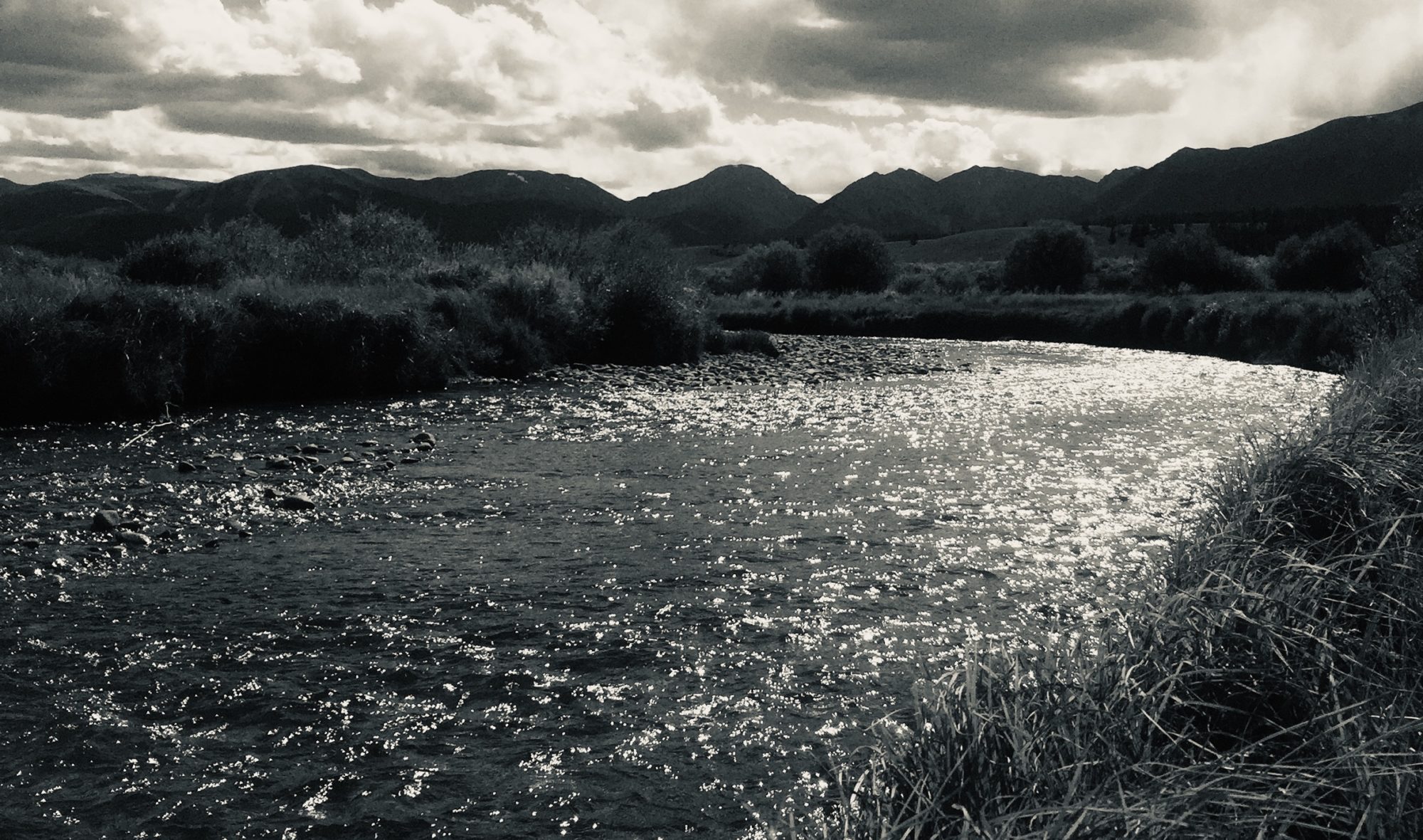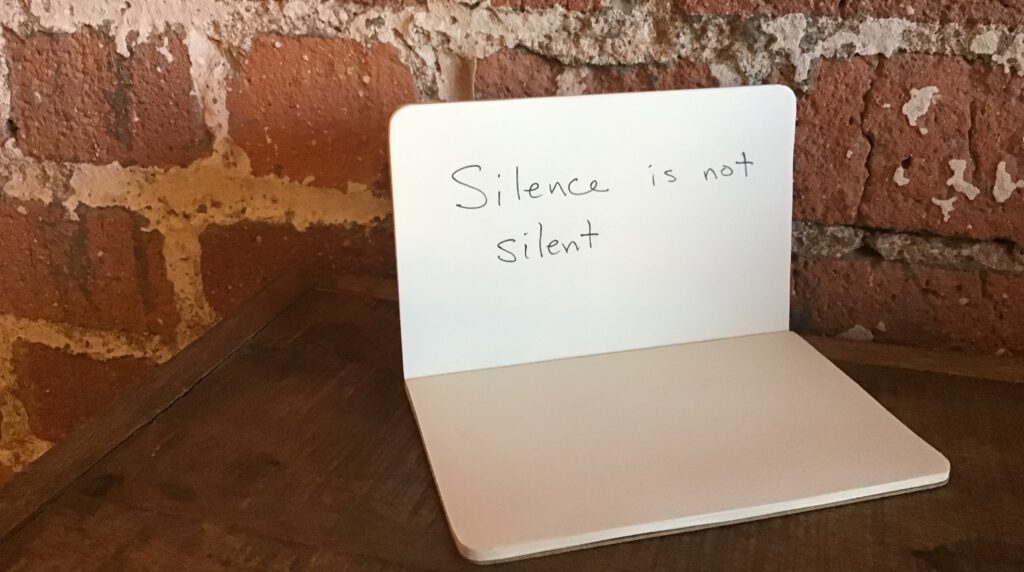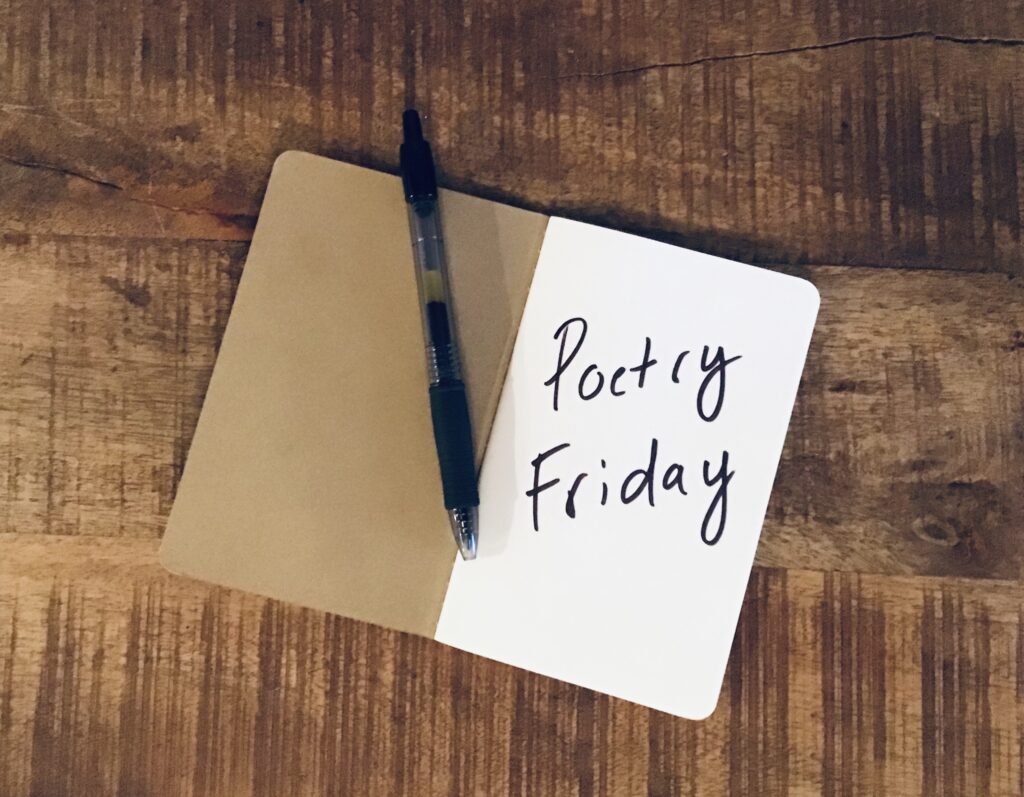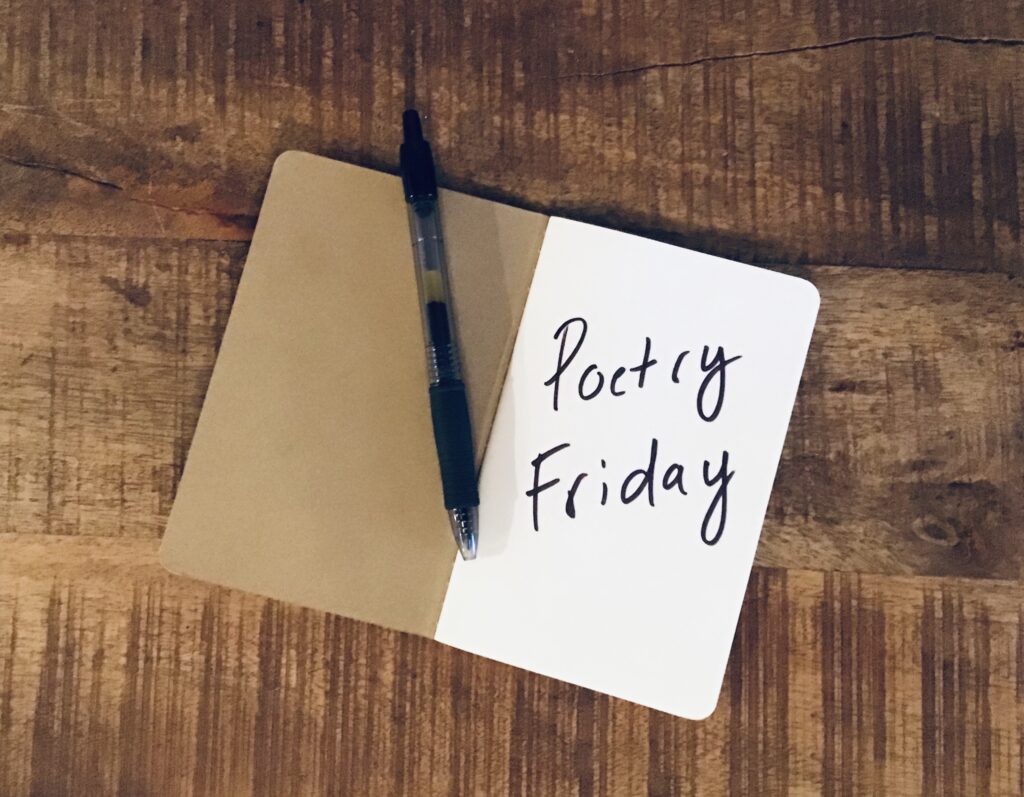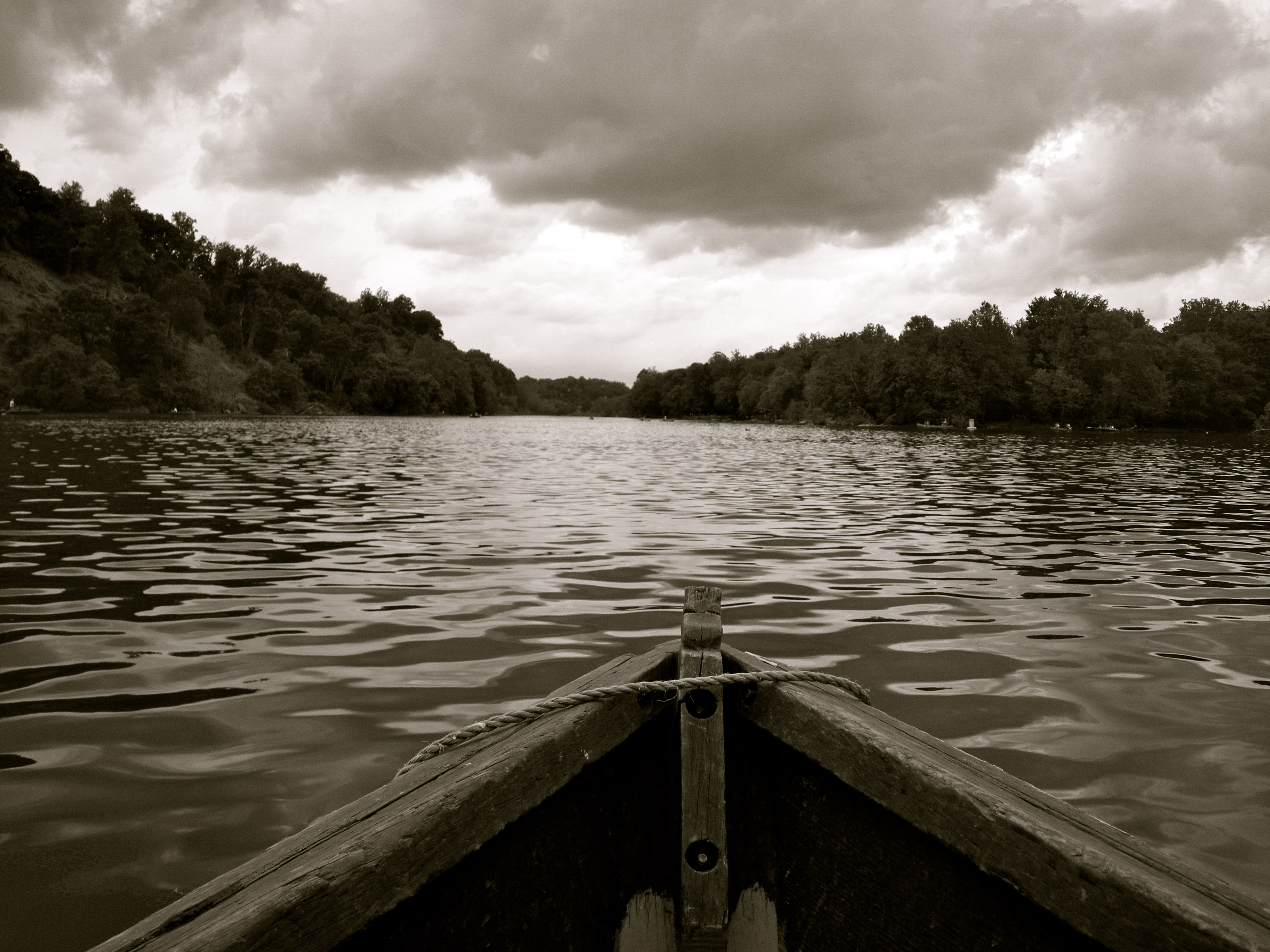
–Tragedy on the Nagadan–
Still three years ago…
It had been a little more than a week since Tracey dragged Niko into the emergency clinic. He was now able walk, and his infections were under control. The first thing he used his regained strength for was the police interview. Tracey suggested bringing a lawyer, but Niko refused. “Lawyers are for when you have to lie, and a Chamonix never lies.”
Tracey shook her head at him, too exhausted to engage.
Niko sat alone in the sheriff’s office.
“You mind if I record this?” the sheriff, a towering man named Roland Reynolds, asked. He was leaning forward over his desk in his blue uniform with his hand over the recorder.
“Go ahead sheriff,” Niko said.
Reynolds clicked the machine, confirmed the time, date, and the names of those present. “Well, what happened out there?”
“When?”
Reynolds raised his eyebrows. “From the moment you met Bernard and Andrea. I need all of the details you can remember.”
Niko shifted in his seat and began. “We met at the shop. They seemed nice enough, a little out of their element, but fine.”
“Out of their element?”
“Yea. They seemed more like the yacht crowd than the drift boat crowd. And, I didn’t expect the little-boy.”
“Are you referring to the deceased four-year-old, Richard Rupert?”
Niko’s eyes lasered through the table in front of him. “Yes.”
“Go on,” Reynolds instructed.
“I didn’t know they were bringing the boy. I told them I didn’t feel good taking someone that young out there on that river.”
“Which river?”
Niko was pinching and rolling the fabric on the legs of his pants. “The Nagadan. Don’t you all know all of this shit already?”
Reynolds frowned. “What I know is of no concern. I need complete accounts from all involved.” He looked at Niko’s fidgety hands. “Is this bothering you? You got something else to do right now?”
“I get the feeling you’ve already made your mind up about me.”
“I don’t make my mind up. I listen, gather evidence, and go from there.”
Niko continued. “They drove in from Boston and told me the baby sitter had cancelled at the last minute. I offered to have the kid stay with Tracey, but they insisted on him coming. Said they had never left him alone with a stranger.”
“Did that bother you? Them not trusting Tracey?”
Niko pursed his lips and shook his head. “No. Why would I care what they thought about Tracey?”
“Seems like you think they are — ” Reynolds carefully searched for the right phrase, “arrogant.”
“I would say stuck up,” Niko replied. “I should have returned their deposit and told them to drive back down to Boston. I should’ve said I wouldn’t babysit out there. But, I just went along with it.”
“Why were you so worried about a kid out there?”
“Same reason I told them. The river looks calm, but it will swallow you up and pull you down in a second. Kids don’t realize that. Bernard said they would be fine and that I was making too much of it. He was a jerk from the start — thought he knew it all because he was some sort of fancy journalist or something.”
“You calling a man who just lost his child a jerk?” Reynolds asked, eyebrows raised.
“Yea. Tragedy doesn’t change who you were before it happened. If he had listened to me out there, he would still have his son. I wouldn’t feel like — ” Niko stopped short.
“Pretty cold way to look things.”
“Just reality.” Niko’s forearm muscles were flexing as he squeezed the chair handle.
“Go on. Tell me about it.”
“The trip up was fine. We drove about forty miles to the last public boat launch, and I had enough gas for the outboard to get the rest of the way on the river. The plan was to camp out near the headwaters, fish, and then just float back to town.”
“How did your truck get back?”
“I take my friend with me and he drives it back. I give him free gear from the shop in exchange.”
“Who?” Reynolds asked with his pen ready to write a name.
“Mossy Kroll.”
“The brewery guy?”
“Yea, that’s him.”
“Could he corroborate any of the warnings you gave the family?”
“Yea. He was warning them too.”
“What happened after you got to the boat ramp?”
“Standard trip. The weather was perfect. The flows were a little high but nothing too heavy. Bernard and Andrea seemed bored, but the kid loved it.”
“Richard?”
“What?”
“You are referring to Richard, right?”
“Yea. He was the only kid out there.”
“Just checking.”
“I was watching over him the whole time.”
“Why so intent on Richard?”
“Because he was interested in everything, each stick or leaf floating by, and Bernard and Andrea didn’t understand how to watch a child in an environment like that. Why is that hard for you to understand?” Niko’s voice was higher now.
Reynolds sat back. “Niko, I understand what you are saying. You’ve got to understand I have questions to ask. I have to figure things out.”
Niko leaned forward in the chair. “Fine.”
“What next?”
“To be honest I was surprised at how smooth it was. No one got sick, no nosy animals, no storms. We got to camp, had a nice dinner, some fishing, slept, and then started floating back.” Niko paused and bit into his bottom lip. “The only thing that went wrong was thing that went wrong.”
“That was a big one,” Reynolds said.
“You don’t have to tell me that. I was there,” Niko was leaned all the way forward and looking at the floor. “Well, it was about mid-day, and I was happy to be headed back, and — ”
“Why so happy to be coming back?”
Man, this guy does not skip a detail.
“Because they didn’t talk much, and they weren’t interested in doing anything for themselves, including watching their child. The river is tight and deep up there. You ever been that far on the Nagadan?”
Reynolds thought for a moment. It was hard to tell if he was considering the question or considering if he would even entertain a question.
“No, I haven’t,” Reynolds said.
“Well, the water rolls fast up there, and the river is full of all kinds of formations that churn big hydraulics. The surface is so smooth and clam that most people don’t even notice, so I was a little on edge. I was anxious to get through it to the easier water. Bernard was fishing while we floated, and I saw the kid — “
“Richard?”
“Yea, he was leaning over the side of the boat reaching for a stick. Neither Bernard or Andrea were looking at him.
“I slammed the oars down and pulled the kid back into the boat. He started crying because he hit his arm on a tackle box. Bernard started yelling at me, asking me what the hell I was doing and telling me to keep my hands off his son.”
Niko’s jaw was flexing.
“Why don’t you ever say his name?” Reynolds asked.
“What name?”
“Richard.”
Niko sat up and looked right at Reynolds. His jaw was now clenched and set hard.
“You want the story or not?”
“Just curious about the name. Go on.”
“I told Bernard that I just saved his son’s … I mean Richard’s life,” he paused to see how Reynolds reacted. “Then I told him that I couldn’t run the boat, help him fish, make everyone snacks, and babysit out there.”
“What did he say to that?”
“He asked what he was paying me for. Then he called me a hick and said I was overreacting. That the life-vest was more than enough.” Niko paused. “Does this all match up with the story that they told you?”
“I can’t answer that before I hear your side of things.”
“Well, Andrea was holding Richard, and he had stopped crying. She even told Bernard to stop his bickering, but he just kept on. He complained that it was boring, that there was no adventure.”
“I looked around — a pristine river, no roads, no people, no noise, just fish and wilderness for miles. I said, ‘This is the adventure.’”
“How did they react to that?” Reynolds asked.
“Bernard calmed down a little and decided to keep fishing while we floated. After an hour he hooked into a good salmon. I tried to help him land it, but he refused. He got the fish in the boat, but he was handling it like it was live grenade. Things were flopping all over, and in the commotion he buried the hook deep in his thumb as the fish splashed back into the water.”
“He started yelling and cussing again and got real aggressive. He said, ‘You gonna help me get this damn thing out of my thumb, you piece of shit.”
“He said that?” Reynolds asked. “You remember those exact words after all this time?”
“Yea. I’ve never been talked to like that on my own boat. And I’ve never been sarcastic with a client in my life, but he was too much. I yelled back, ‘Thought you didn’t need any help?’
“He told me not to be an asshole and get the hook out. I knew I had to help him, so I pulled the oars, got my wire cutters and clipped the hook. It pushed through nice and easy. Then I heard a splash.”
“What splashed?” Reynolds asked.
“What do you think?” Niko was quiet now, his voice soft. His eyes downturned and glassy. “I turned and saw the boy, bobbing in the water, his little red hat still on. He was already thirty yards downstream. I jumped in, no vest on, and started swimming like hell, but he was so far ahead already. He went under for a moment and lost his hat, and I heard his mother scream. I looked back and saw them on the boat. That man, the one who you felt so concerned for when I called him a jerk, was just standing there watching his own son float away.”
“He didn’t jump in to help?”
“No. He just watched.” Niko’s voice was shaking in a combination of anger and sadness. “The kid popped back up, coughing and crying now, but I couldn’t make up the distance. I kept trying, and it felt like miles, but I supposed it was just a few hundred yards. He drifted towards the bank and snagged on a log jam. I could see the water pile up on him right away.”
“And the father was still in the boat?”
“Yes, he was. I cut hard towards the boy, but I couldn’t get there in time. I floated past him before finally reaching the bank downstream, and I hoped to god that his parents would float right to him and get him out. I started running back over the stones and drift wood. I didn’t see the boat yet, but so I started climbing the log jam from the downstream side. I fell more times than I can count. I finally got to the top and spotted Richard in his yellow vest.”
Niko took a deep breath and continued. “I didn’t think, and I just jumped from the top and landed next to him, and I felt the heavy water on me immediately. I almost got pushed under myself, but I pulled up on a limb and then grabbed the boy. His head was pushed down, and he wasn’t struggling, and I knew it right then, but I kept trying. I pulled his body up and out, and I carried him by the vest, lifeless and limp towards the bank. His face was blue. I saw the boat just upstream. His parents had their hands over the mouths, and they were screaming. When I reached the bank, I put him down in the sand and tried CPR. I got the water to come out of his lungs, shooting out the first couple of times I pumped his chest, but he didn’t cough or breath. His eyes were dead, but I kept pumping until I felt a tap on my shoulder.”
Niko was now whispering as he leaned forward with his elbows on his knees.
“I turned. I was trying to think of what to say to his parents. I had no words for that. Then I saw Bernard with his hands up and back over his shoulder, and I was confused. Andrea was still in the boat, and I remember she yelled Bernard’s name, not the kid’s. Then I saw the oar in Bernard’s hands, and we locked eyes for a moment. I thought to put my hands up, but it was all so fast. He swung the oar at my face, and I blacked out. When I woke up it was dusk. I was alone and wet. There were footsteps leading back to the water, but the boat was gone. The kid was gone.”
Niko stopped there and waited. He felt the deep, aching tiredness that you feel once you return home from a funeral. He slumped back into the uncomfortable chair.
Reynolds leaned back and rubbed his temples with one hand.
“Interesting. That’s not how they recount the events of that day.”
“I don’t know what to tell you about that,” Niko said.
…
Check back in for a new episode next Tuesday!
